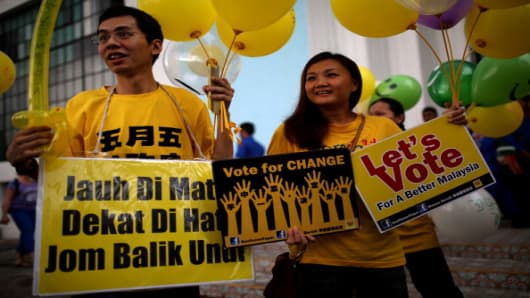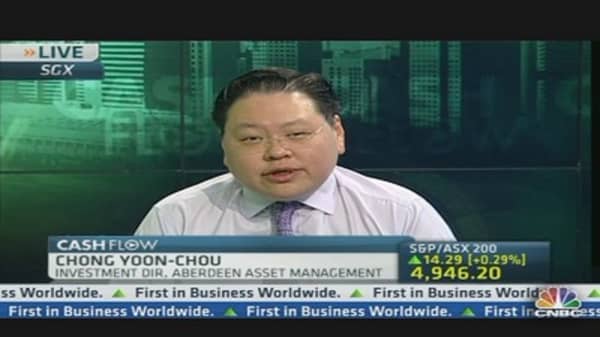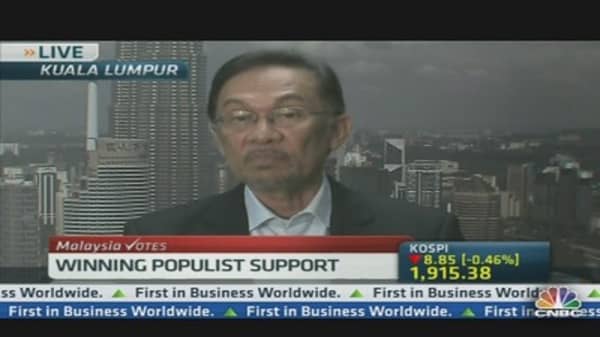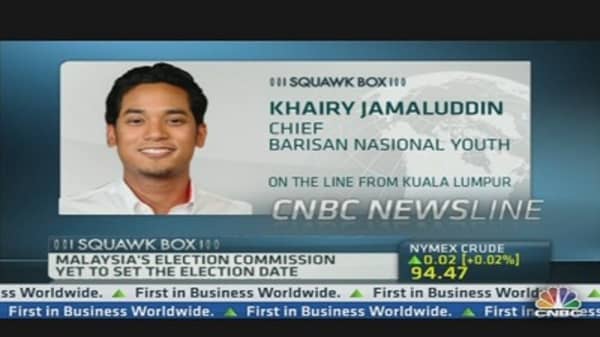A general election in Malaysia this Sunday is shaping up to be the most hotly-contested poll ever to be held in Southeast Asia's third biggest economy. And the outcome could be much tighter than markets are anticipating, Malaysia watchers say.
The ruling coalition led by United Malays National Organisation (UNMO), which has held power for 56 years thanks to strong economic growth and strict rule, faces stiff competition from the Pakatan Rakyat (People's Pact) opposition alliance that has benefited from fatigue with the ruling party and has pledged to stamp out corruption.
Observers say that while the most likely outcome is that the ruling coalition returns to power with a reduced parliamentary majority, the election could be just too close to call.
(Read More: Malaysia's Najib Calls Election, Close Race Expected)
"The base-case scenario for markets is that the ruling coalition will return to power with a reduced majority, but looking at some of the recent polls, the crowds turning out at rallies, it looks pretty tight," said Hak Bin Chua, a regional economist at Bank of America Merrill Lynch in Singapore.







